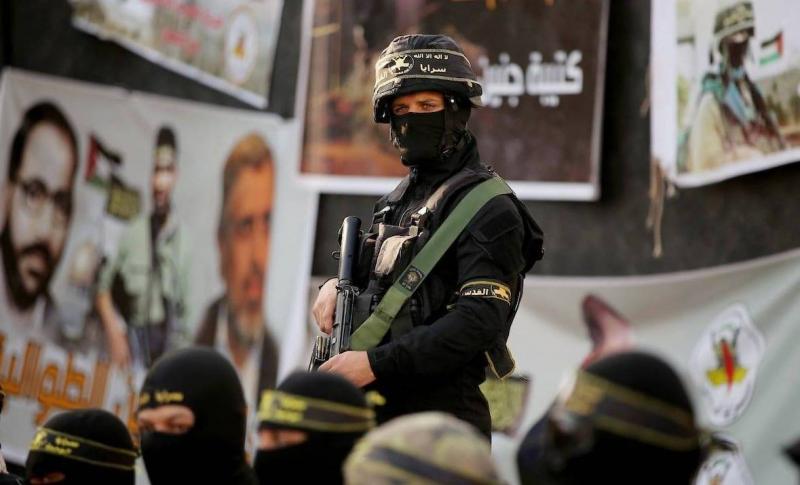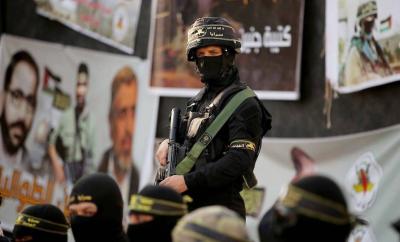Moussa Abu Marzouk, since the beginning of the war in Gaza following Hamas's attack on Israel, termed "Al-Aqsa Flood," has raised significant questions regarding the concept of unity among fronts and how to activate it, especially after the violent assault by Israel against Hamas in Gaza. Abu Marzouk, a member of Hamas's political bureau, previously stated: "We were expecting a lot from Hezbollah and our brothers in the West Bank, but we were astonished by the disgraceful position of our brothers in the authority."
When asked about Hamas's expectations from Hezbollah, he said: "We rely on ourselves and invite all friends to participate in this confrontation, but we cannot act as judges while we are at war against a fierce, mighty, arrogant, and terrorist enemy in every sense of the word, then judge others."
He added: "We want to bring closer what is distant and strengthen our proximity, and we are not concerned with raising any negatives in this battle. We are obligated to be very kind in our discourse with everyone, distant from any criticism. We want everyone to join us in this honorable battle to the extent that they deem fit, not according to what we hope for."
He continued: "Certainly, people expected a lot from our allies in this battle and from our people in the West Bank. When we ask for help from this or that, we are told: Where are your brothers in the authority and the West Bank?"
Furthermore, he said: "We have 60,000 rifles in the West Bank in the hands of the security apparatus of the authority. Why are they directed at the chest of demonstrators and resistors and not towards the natural enemies who target us and them? Why don’t our brothers in the security apparatus act?"
Abu Marzouk also mentioned: "Many of those I contact for foreign assistance say they are speaking with Arab parties, some of whom are from the Palestinian Authority, encouraging the exclusion of Hamas from the scene, but they cannot discuss this publicly because it is rejected."
Following Abu Marzouk's remarks, "Saraiya Al-Quds," the military wing of the Palestinian Jihad movement, sent a message to Hezbollah, urging it to act to "remove Israel from existence."
"Saraiya Al-Quds" viewed, in their message, that Israel is "sinking in the quagmire of Gaza," and questioned how it can confront and fight Hezbollah in Lebanon. They stated, "The time has come for the resistance axis to act for the annihilation of Israel."
They also considered that Israel misjudged its calculations, asserting: "We are certain that you will carry out your mission with utmost competence."
This comes as Hezbollah, supported by Iran, has been exchanging fire with Israel along the border almost daily since the war in the Gaza Strip began on October 7, in support of Gaza and Hamas, as it claims. However, tensions have risen recently following the killing of prominent Hezbollah military commander Fouad Shukr in an Israeli airstrike in southern Beirut a few weeks ago. This followed the assassination of the head of Hamas’s political bureau, Ismail Haniyeh, in Tehran, which was attributed to Israel, prompting both Hezbollah and Iran to vow a definitive response.
### Unifying Battlefronts
It is noteworthy that in recent years, new terms related to the conflict with Israel have emerged, advocating for the unification of battlefronts, as well as the establishment of a "resistance axis" comprising forces in Lebanon, Palestine, Iraq, Syria, and Yemen. The term "unity of the fronts," which has resurfaced since the outbreak of war between Israel and Hamas in Gaza on October 7, implies practically activating multiple fronts simultaneously against Israel and its primary ally, the United States, even if the battle is initiated by one of the Iran-affiliated movements for specific reasons.
These fronts include Gaza, the West Bank, Lebanon, the Syrian Golan, Iraq, Yemen, and sometimes involve Arab Israelis. It appears that the fronts are not unified, especially since the response from the resistance factions in the region has been very timid, unless this reflects the strength of these factions.




